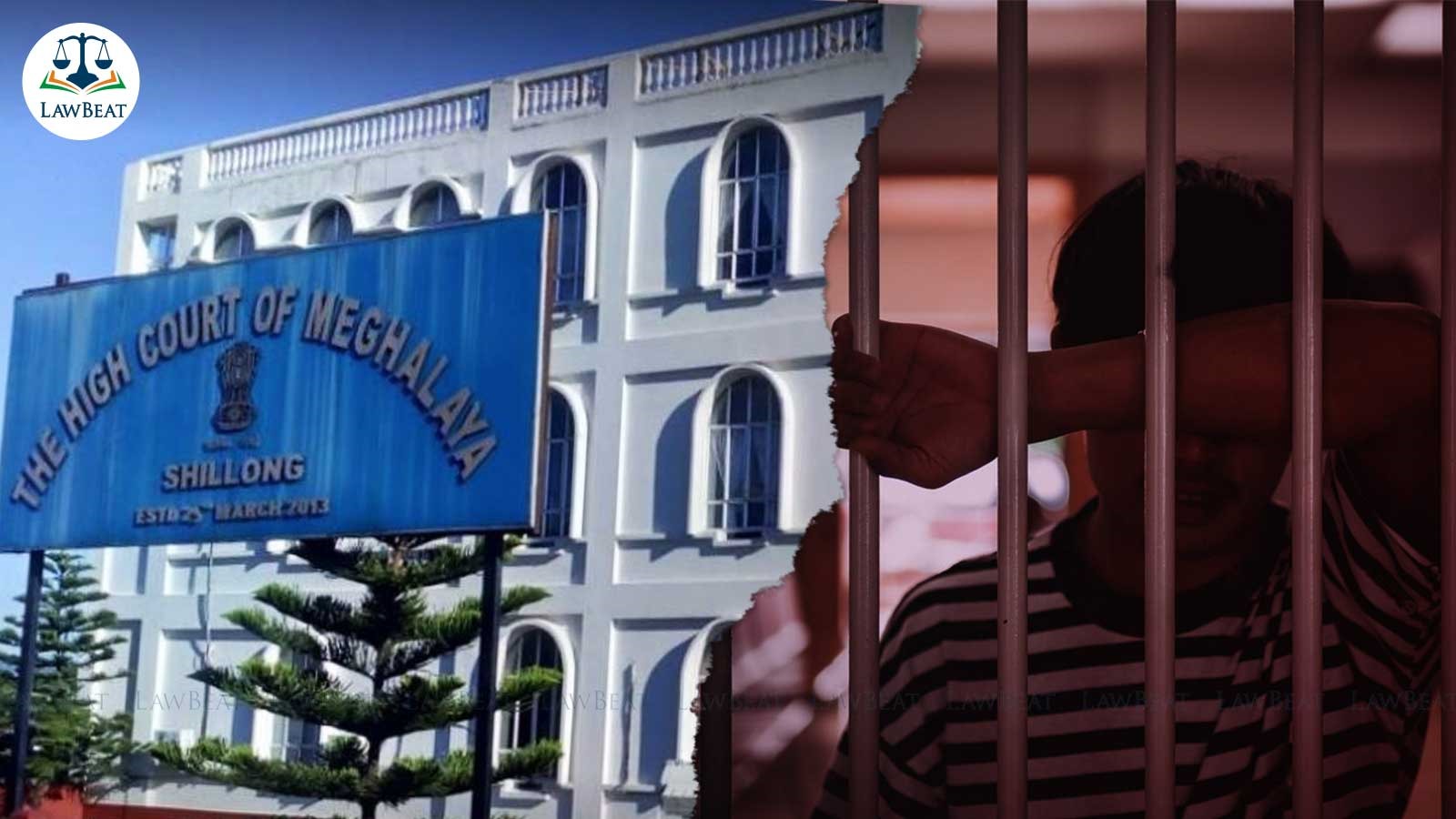Statutory Liberty Doesn't Mean Life Imprisonment for All Accused Persons : Meghalaya HC Reduces Sentence in POCSO Case

The court stated that “the accused will not get any chance to repent himself for commission of the offence”
The Meghalaya High Court, in a significant ruling, has reduced the sentence of a man convicted for rape under the Prevention of Children from Sexual Offences (POCSO) Act and the Indian Penal Code (IPC), from 30 years rigorous imprisonment to 7 years, emphasising that statutory liberty to impose life imprisonment does not necessarily mean that all accused persons must be awarded the maximum sentence.
A Division bench comprising of the Chief Justice S. Vaidyanathan and Justice W. Diengdoh, delivered the verdict acknowledging the severity of the charges and noted the consistency of the victim’s primary testimony, corroborated by medical findings of injuries consistent with sexual assault. However, the court also considered mitigating factors, including the victim’s admission during cross-examination that she was in a relationship with the accused, suggesting a context that could warrant a more lenient sentence.
The case originated from an incident reported on December 3, 2016, wherein the mother of the 13-year-old victim lodged a complaint alleging that the accused, Wahlang, had committed aggravated penetrative sexual assault and rape on her daughter. An FIR was registered under Sections 363, 323, 376(2)(i), and 506 IPC read with Section 4 of the POCSO Act, 2012.The trial court convicted the accused and sentenced him under various sections of the IPC and POCSO Act, imposing concurrent sentences, with the harshest being 30 years of rigorous imprisonment under Section 376(2) IPC.
The accused filed an appeal against the conviction before the High Court, arguing that the victim's testimony was inconsistent and unreliable. It was contended that the conviction was based on inconsistent and unreliable testimony from the victim. It was further argued that the victim’s contradictory statements during cross-examination, where she alternated between claiming knowledge of the accused and later denying it, indicated possible tutoring. Additionally, it was highlighted that the medical examination showed no recent signs of sexual intercourse or external injuries, undermining the prosecution's claims.
In contrast, the prosecution argued that the victim’s testimony was clear and consistent and minor discrepancies should not overshadow the overall credibility of the victim’s account, especially in light of corroborating medical evidence.
The court underscored that the victim's testimony, which indicated that she was in a relationship with the accused, cannot be disregarded. “Since Statute had given liberty to extend the punishment for life, it does not mean that all accused persons must be imprisoned for life irrespective of the facts and circumstances involved,” the court observed.
Considering the accused's age at the time of the incident (21 years) and the possibility of rehabilitation, the court deemed the 30-year sentence excessive. The court stated that “the accused will not get any chance to repent himself for commission of the offence.”
Consequently, the court reduced the sentence to 7 years rigorous imprisonment with regards the offence of rape under Section 376 IPC, maintaining the other sentences and fines imposed by the trial court. The fine amount, set at ₹2,00,000, is to be paid as compensation to the victim.
Cause Title: Disroywel Wahlang Vs. State of Meghalaya [Crl.A.No.1/2024]
